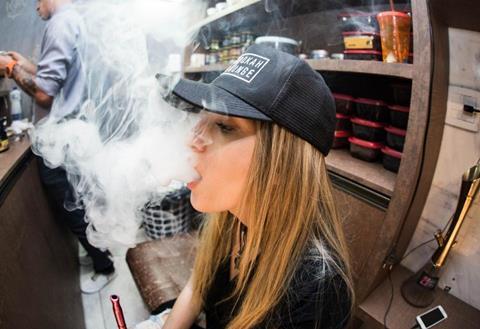Claire Hailwood is alarmed by the rise in children who ‘vape’ but sees it a chance for parents to chat with their children.

There is currently a legal loophole that allows retailers to give free vape samples to children.
Whether deliberately or accidentally created, its existence is worrying.
The headline that ‘Government plans under-age crackdown’ is something that on a surface level many grown ups caring for children would welcome, but with only a ‘review’ into the rules around the sale of ‘nicotine-free’ products planned, does it, or any other part of this, give hope or reassurance that the government knows and understands the depth of the problem?
This isn’t a party-political statement. I hate it when politics are played around an issue, particularly when the health of children and teenagers are concerned. Whoever is in power, I imagine we’d be asking similar questions.
The research suggests that 7.7% of 11-17 years olds vaped in 2022 and that’s risen to 11.6% in 2023. Forty per cent of young people said they had tried just to give it a go.
Vaping is held up as a healthier alternative because it’s less harmful and not as addictive. Colourful flavours like bubblegum and cola show that the targeted age group perhaps aren’t so much middle aged as middle school.
Professor Chris Witty said vaping is a good alternative for adult smokers but has concerns that products are increasingly being aimed at children. And although it’s deemed less harmful than smoking, the longer-term health implications are not fully understood. In fact, research is beginning to demonstrate that vaping is increasingly becoming a gateway to smoking cigarettes. (For more on cigarettes go here )
The rise of vaping from about 11 million globally in 2011 to 82 million in 2021 demonstrates an extraordinary increase in numbers. Yet it’s only this July that a resource package for schools will be available digitally for 11-13s. It feels like another example where culture moves and changes at pace while educators and the system are much less agile.
Maybe this is an opportunity for the informal educators amongst us to demonstrate the beauty of informal education to be able to pivot quickly and flex to be responsive?
Parents and carers, we might not understand vaping, its appeal or pressure, or we might see our own challenge with addiction reflected all too clearly, but we must have conversations.
If you feel like your child never would.
If you’re worried that they are and don’t want to say anything
If you know there’s challenge
OR anything else.
We must be brave enough to have conversations: not full of judgement or rooted in fear, but with love, acceptance and support that encourages children to open up without fear of ramifications.
As Christian parents we can better know how to pray for and support our children and consider why they may be tempted to try vaping, whether this is curiosity or an underlying need to fill a hole.
And what if we prayed for politicians and leaders, that they’d be brave enough to pursue policies that led to real, long last change, not just popular ones that could lead to a next election win?
What if we were brave enough to have conversations with all children: those in our home and family, and those we have the privilege of being connected to and with? Maybe this newish ‘craze’ might lead to something valuable happening?































